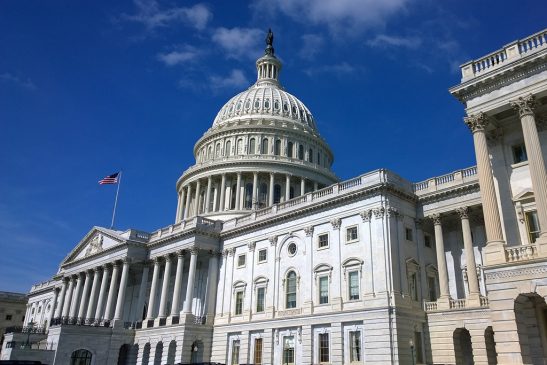Photo: Pixabay
Republican Congressman, Warren Davidson, has said that he plans to introduce new legislation in the house. The planned pro-ICO and crypto legislation aims at regulating the ICOs and the federal cryptos. This announced was reported on a local Ohio news agency, Cleveland.com.
The bill, when finalized, would create an ‘asset class’ focused on tokens only. The new bill will prevent cryptos from being classified as securities. However, the new law would let the federal government regulate ICOs more effectively. The announcement came at a four-day blockchain conference in Cleveland. The Ethereum co-founder, Joseph Lubin, was also in attendance.
Asset Class Pro-ICO and Crypto Law Creation
In the past two years, the ICO world has exploded. This growth has also attracted fraudulent characters prompting the government to intervene as reported in Coinspeaker. Davidson made his intentions known at the Blockchain Solutions Conference. He explained that the new pro-ICO and crypto legislation would launch an asset class for digital assets and cryptos. He said:
“Tapping the potential ICO’s offer requires a law that provides a simple but clear ‘light-touch’ approach.”
Therefore, the cryptos would not be classified as securities when the bill is passed. The federal government would also gain some new powers enabling it to regulate ICOs in an effectual manner. A lot is happening in the US crypto regulation world. But, the new bill will bring much clarity regarding the issue.
How Agencies View Cryptos
Two notable agencies have actively involved themselves with crypto classification and regulation issues. These are the Commodity Futures Trading Commission (CFTC) and the Securities and Exchange Commission (SEC). Both have a different opinion about the categorization of digital assets and cryptos.
The SEC considers several virtual coins as securities. On the contrary, CFTC classifies all virtual coins as commodities. The CFTCagency also believes that Bitcoin resembles gold more than it resembles currencies and securities. This categorization is due to lack of liabilities connected to bitcoin and it is not backed by any state.
The Anti-Money Laundering Agencies Opinion
The Financial Crimes Enforcement Network and the Anti-Money Laundering agency see cryptos as a haven for scammers and hackers. Nonetheless, they regard the virtual coin as money just like the U.S Office of Foreign Assets Control.
The controlling agency and the ‘know your customer standards’ enforce economic sanctions. They also blacklist the wallets of all sanctioned individuals. The IRS (Internal Revenue Service) regards cryptos as property. Thus, all profits acquired from selling cryptos are liable to remit the tax of capital gains.
Guidelines are Necessary
Some US Congressional representatives wrote to the SEC chairman, Jay Clayton, in September 2018. They requested clear guidance and guidelines about all cryptos already classified as securities. In the same month, almost 50 major crypto firm managers and representatives attended a Congressional roundtable discussion.
This discussion focused on ICO and crypto regulation. Wall Street companies were also in attendance. The chief organizer of the discussion, Warren Davidson, believes that cooperation from all stakeholders will help the crypto industry to thrive in a controlled environment.
The experts in attendance were disgruntled by lack of regulatory clarity. They also discussed the digital token taxonomy issue.




